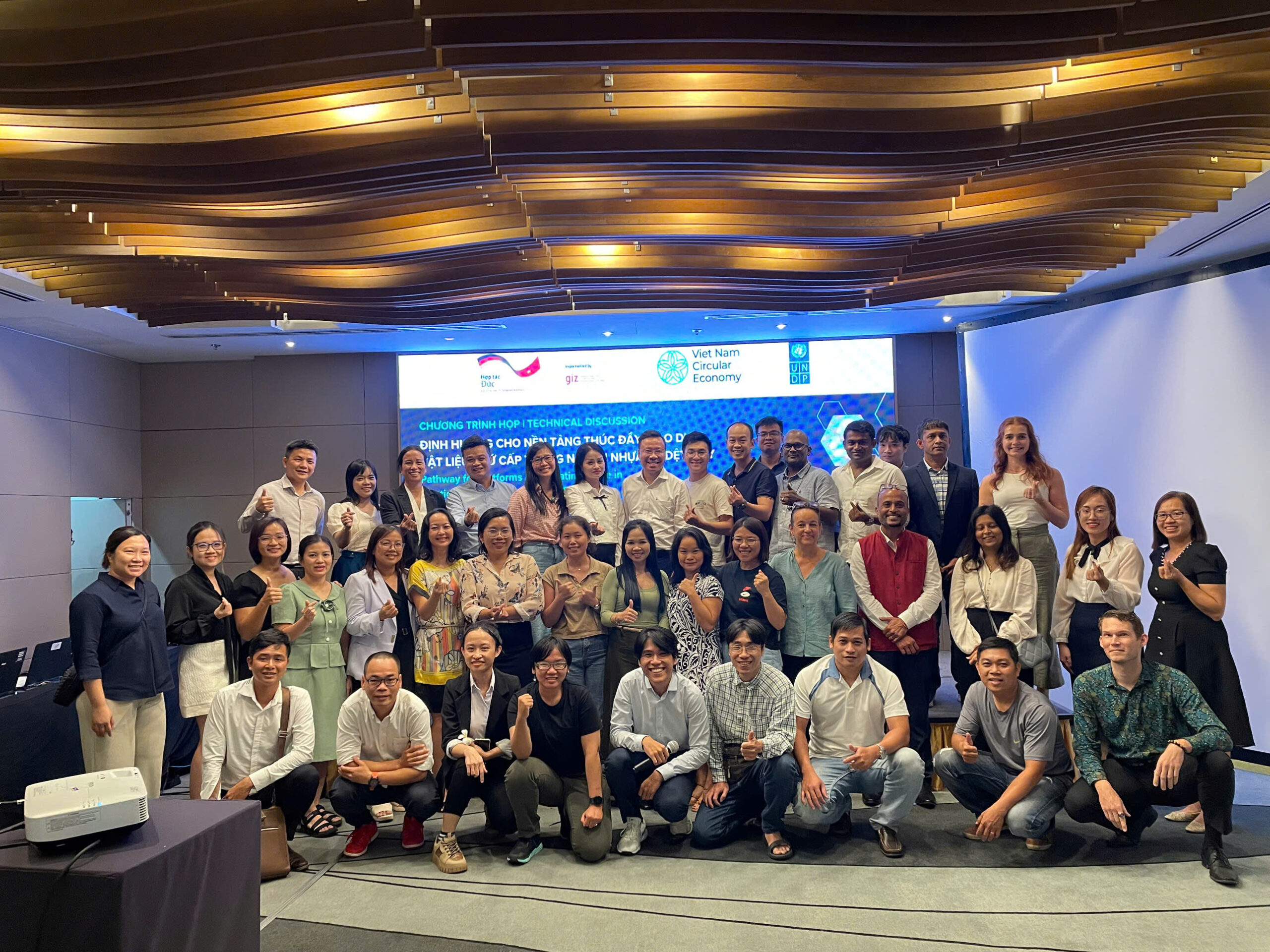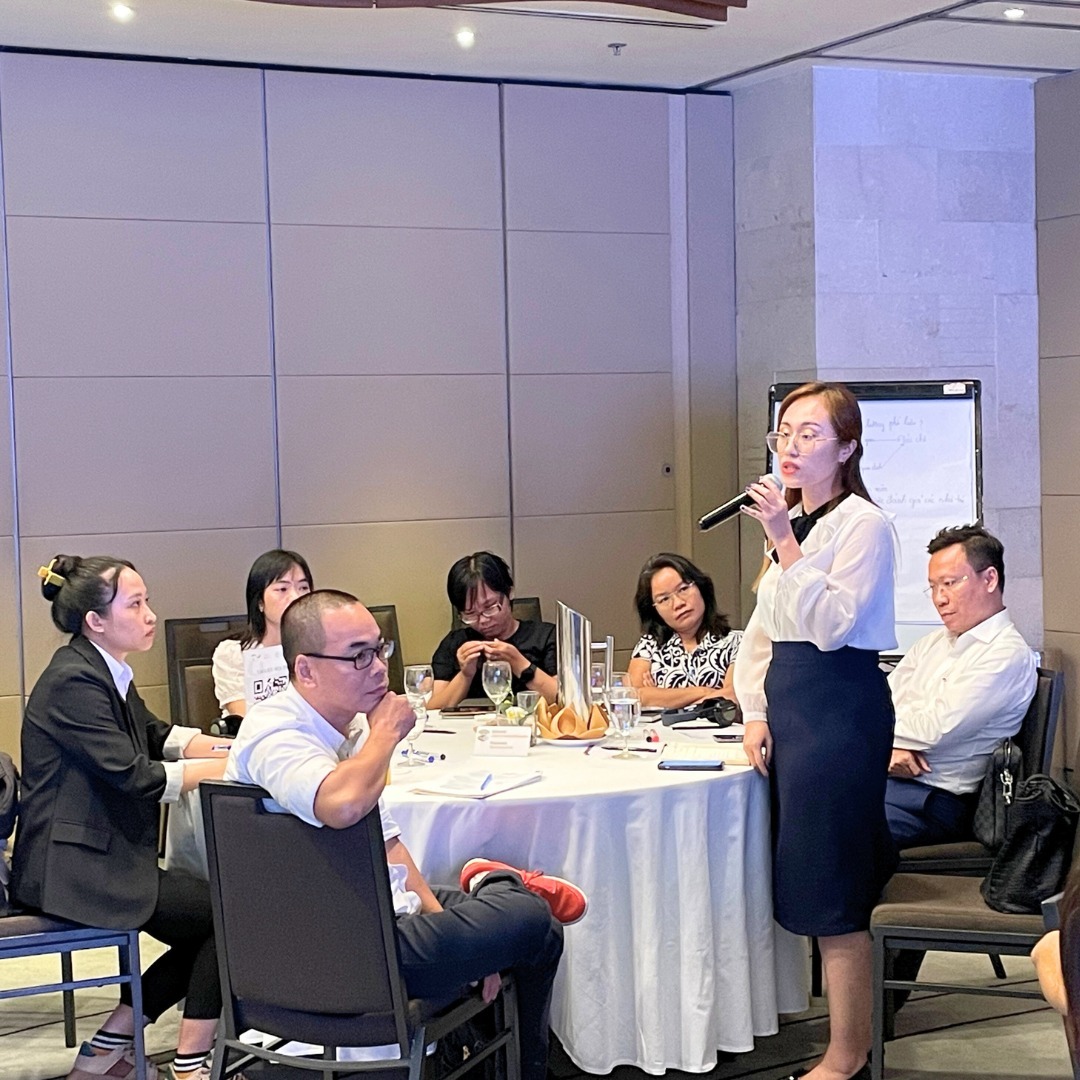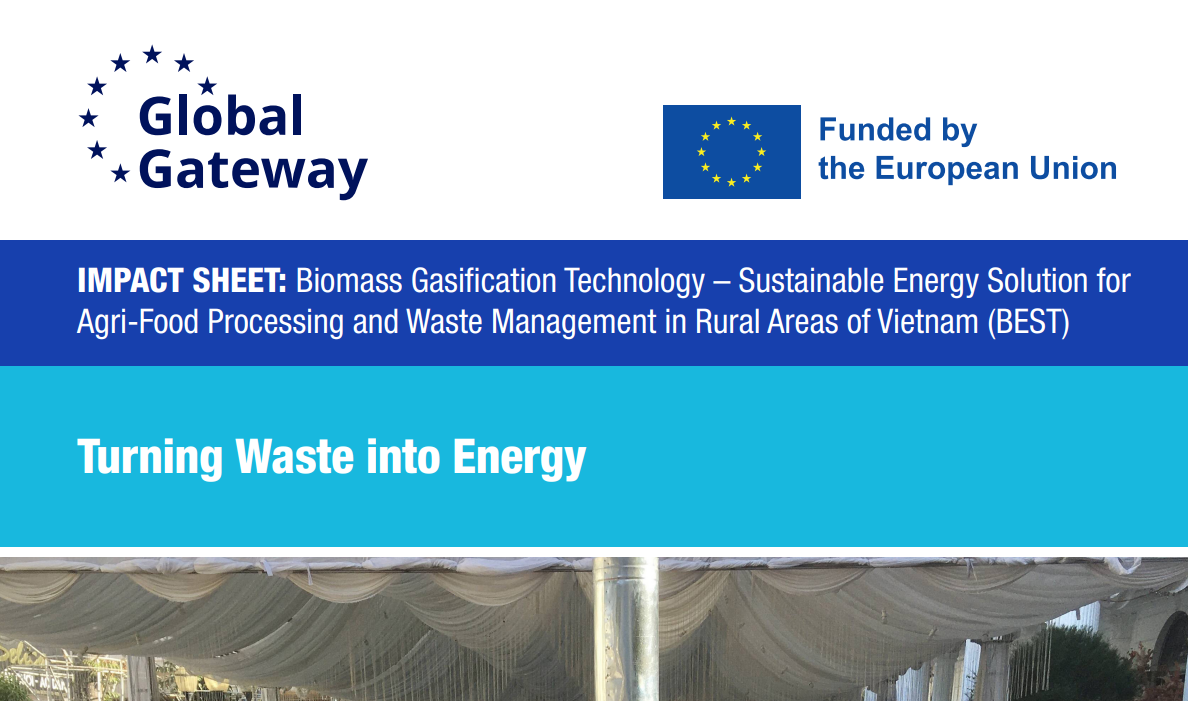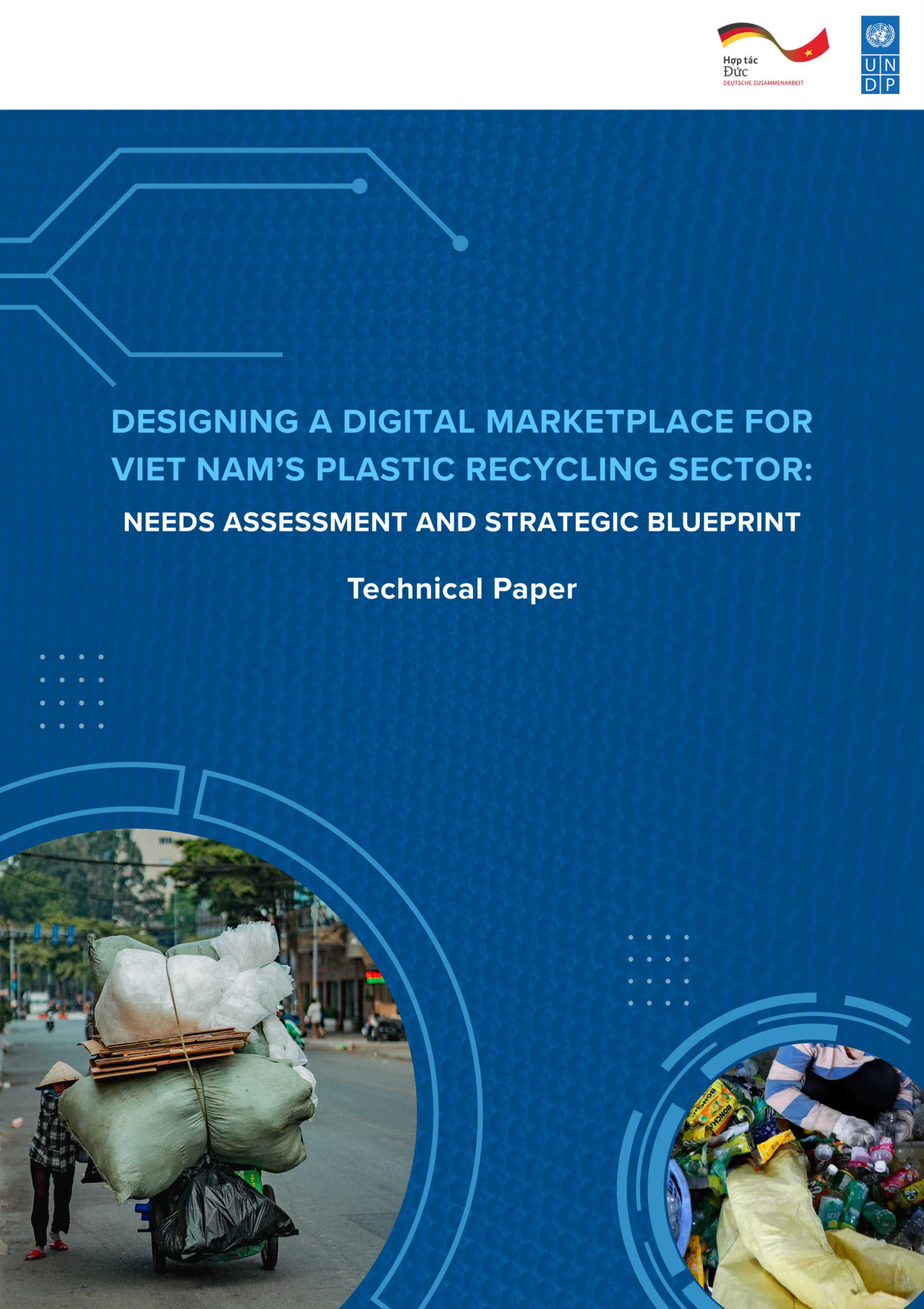Suitable digital platforms to address the difficulties faced by stakeholders in the secondary material trade

In September, the United Nations Development Programme (UNDP) and the German Agency for International Cooperation (GIZ), in collaboration with the Viet Nam Circular Economy Hub, hosted a technical discussion titled “Pathway for platforms accelerating trade in plastic and textile secondary materials.”
A recent UNDP study assessing potential users’ needs for an online secondary materials market revealed that 43% of formal recyclers and 58% of informal recyclers expressed strong interest in such a platform. However, the report also highlighted that 40% of formal recyclers have no need to participate in an online business-to-business marketplace, as business relationships in this industry are often built on trust, direct contact, and long-term partnerships.
To address these challenges, 40 representatives from innovative solution providers, businesses in the plastics and textile industries, recyclers, collectors, and waste traders actively participated in a group discussion. The aim was to find solutions to the issues faced by existing platforms, such as ensuring a stable supply of high-quality feedstock and developing mechanisms to encourage stakeholder participation.
The event commenced with an opening address by Mr. Hoang Thanh Vinh, Programme Analyst on Circular Economy, Waste and Chemicals at UNDP Vietnam. He stated, “Based on the positive responses from stakeholders in the reports, we see a need to increase productivity and efficiency in the industry. To address this, UNDP is hosting this workshop to further discuss suitable business models that meet the industry’s needs. We will also outline UNDP’s support for platforms – not just one, but multiple platforms – to ensure competitiveness and fairness.”
The event then proceeded with two main sessions: an introduction and a facilitated brainstorming session. The introduction focused on the current state of the plastic and textile recycling industry, including the legal context impacting the development of platforms for secondary material transactions, actual trading behaviors within the industry and the challenges faced by existing digital platforms. Following the introduction, attendees broke into smaller groups to brainstorm solutions and improvements for these platforms, drawing on findings from a previous report.
The session began with two briefings. First, Ms. Pham Anh Huyen from the Economic Department of the Institute of Strategy and Policy on Natural Resources and Environment (ISPONRE) outlined Viet Nam’s National Action Plan on Circular Economy (CE NAP). She emphasized that promoting plastic recycling is a key priority of the CE NAP, comprising of building and operating a platform for information connection, data sharing, and technical standards for recycled plastics, as well as supporting the development of a market for secondary raw materials and recycled plastic products.
Following Ms. Huyen’s briefing, Mr. Ly Vi Ky, CE Hub Officer, UNDP in Viet Nam, provided an overview of the progress of Extended Producer Responsibility (EPR) in Viet Nam and the role of digital marketplaces in supporting EPR implementation. He explained that such platforms can connect buyers and sellers of recycled plastics, leading to reduced collection costs and optimized logistics. This, in turn, can lower the “Fs” co-efficient (a specific cost element within the EPR framework) associated with compulsory contribution to recycling fund producers and importers fail to meet their recycling responsibilities. Ky also suggested that integrating these platforms into the EPR system can streamline applications for EPR funding and other related financial resources, ultimately contributing to more efficient resource allocation.
Ms. Fanny Quertamp, a Waste & Plastics Consultant, presented findings from a report commissioned by UNDP and conducted in collaboration with EPRO, which revealed a mixed reception to the idea of a B2B marketplace for recycled plastics. While 30% of surveyed stakeholders expressed interest in such a platform, primarily to improve their supplier options and access better prices, a larger portion (46%) were not interested, and 24% remained undecided. The report also identified middle-sized, formal recyclers transitioning from imported to domestic waste as the ideal target users, given their desire to expand market share. However, significant challenges exist, including a reliance on trust and long-term partnerships in current trading practices, which could hinder the adoption of online platforms. The informal nature of the industry, with its associated advantages, and a market that currently favors suppliers over buyers, pose further obstacles.
The next presentation was delivered by Ms. Phan Thi Quynh Chi, a Senior Officer at GIZ. She noted the significant increase in recycling solution providers over the past five years and highlighted the high level of technological readiness in the sector. Ranking third in apparel and second in footwear, Viet Nam produces a large volume of post-industrial waste: approximately 250,000 tons from garment production and 150,000 tons from footwear, engendering tremendous potential for textile circularity and enabling it to be firmly established business. While the country possesses significant recycling capacity, the available feedstock remains limited, with the dilemma that almost half of the textile waste currently being downcycled, specifically through co-processing and textile waste has to be imported informally from Cambodia.

The session then transitioned to a panel discussion with representatives from companies operating online trading and networking platforms for the waste and recycling sector. This included Nguyen Trong Minh from GRAC, Bui Linh Chi, Project Manager of Flowwaste, and Sanjit from Reverse Resources. Each panelist provided insights into their company’s unique approach and the challenges they face.
GRAC differentiates itself by collaborating with local authorities to provide comprehensive waste data. They have compiled information on over a million waste sources and are expanding operation in Phu Quoc, Hoi An, and Ha Tinh to build their database. Recognizing the competitive landscape of the B2B market, GRAC plans to expand its services by incorporating C2C and B2C models, fostering growth in underdeveloped market segments.
Flowwaste, on the other hand, focuses solely on the B2B segment with its waste and scrap trading platform. The platform acts as an intermediary, connecting waste generators with treatment and recycling facilities to facilitate direct transactions. Looking ahead, Flowwaste plans to introduce conditional transactions, such as online auctions and bidding for recyclable materials, in 2026-2027.
Reverse Resources offers a different approach by focusing on traceability and transparency within the recycling supply chain. They help manufacturers inventory their waste, track its movement through various handlers and recyclers, and provide crucial information on the final destination and processing of their waste. This enables manufacturers to establish closed-loop circularity and promotes responsible waste management practices.
The panel discussion also highlighted several overarching themes relevant to the development of online platforms in the recycling sector. The panelists emphasized the dominance of creditability practices and contracts within the industry, posing challenges for platforms aiming to find an entry point. They stressed the need for platforms to prioritise practicality and cost-effectiveness, focusing on delivering tangible benefits like cost reduction and improved competitiveness for the time being, and traceability in the longer run. Strong stakeholder engagement and targeted user acquisition were also identified as critical success factors. With regulations on waste sorting at source coming into effect soon, municipalities will be establishing more collection points for recyclables. Platforms must capitalize on this by tapping into the potential of these currently untapped domestic waste sources. Finally, the panelists agreed that platforms should accommodate a wide range of materials to enhance convenience for suppliers and encourage broader adoption.

In the facilitated brainstorming session, participants will break into smaller groups to collaboratively generate solutions and improvements for feasible and effective online platforms in the recycling sector. This brainstorming will be grounded in the main findings of the report presented earlier, with a particular emphasis on addressing challenges related to securing high-quality, large, and consistent volumes of recyclable materials and expanding access to potential customers.
- GRAC announced its commitment to providing free platform access to key stakeholders like waste aggregators. This strategy aims to establish a central hub for collaboration and attract recyclers and large waste suppliers, ultimately driving change across the value chain through a “pull” approach. By collaborating with GRAC, it is estimated that target users could increase their feedstock by 30%.
- Reverse Resources (RR) is developing mobile-friendly applications to assist manufacturers with waste segregation at the source, enabling more efficient inventory management and ensuring waste quality. This initiative represents a significant advancement in data collection and will raise awareness among partner brands, promoting more strategic material planning for recyclers. Furthermore, RR plans to implement data verification processes to cross-check the amount of waste reported by various stakeholders across the value chain, enhancing transparency and accountability.
- Flowwaste emphasized its commitment to transparency by outlining plans to establish clear criteria for data integration on its platform. This will ensure that all information provided by users is accurate and verifiable, fostering trust and reliability among platform participants.
Looking ahead, the project would continue supporting and seeking platforms that facilitate the trade of secondary materials so as to pilot and test new business models in real-world settings to assess their feasibility and effectiveness. This will involve collaborating with various stakeholders, including platform developers, recyclers, and waste generators, to gather valuable data and insights.














